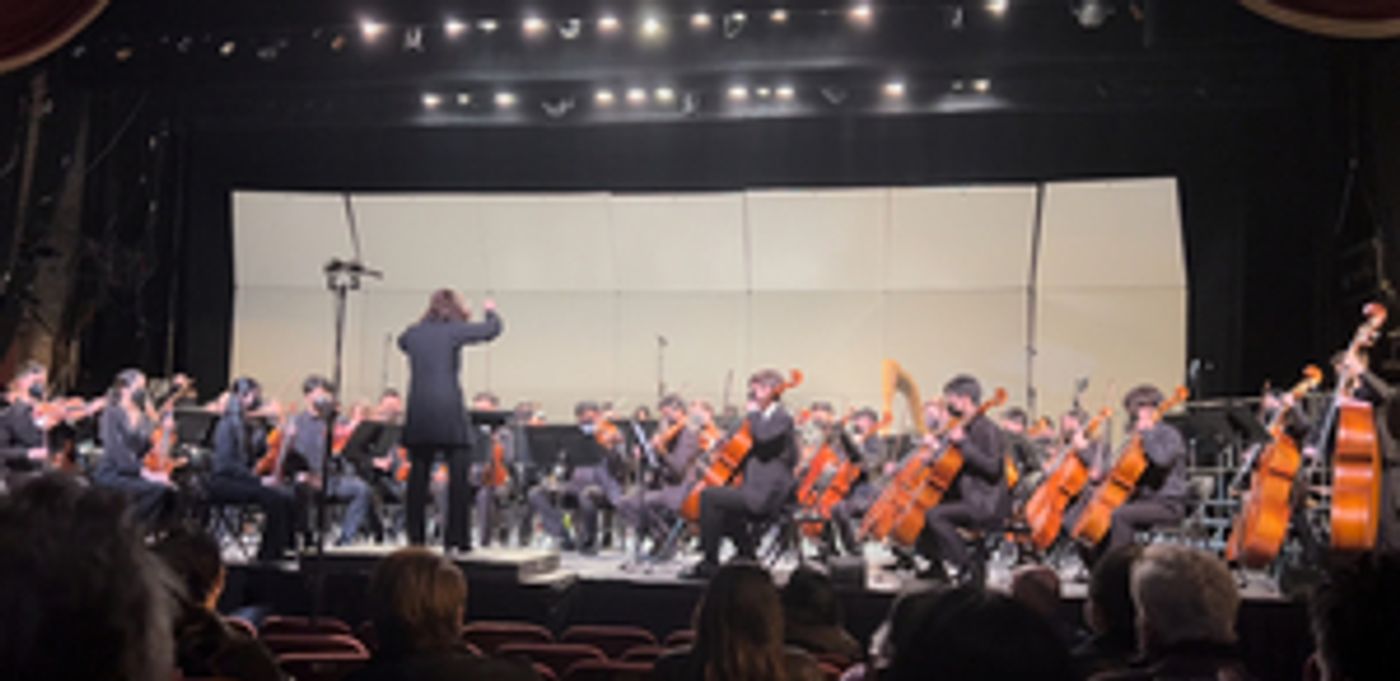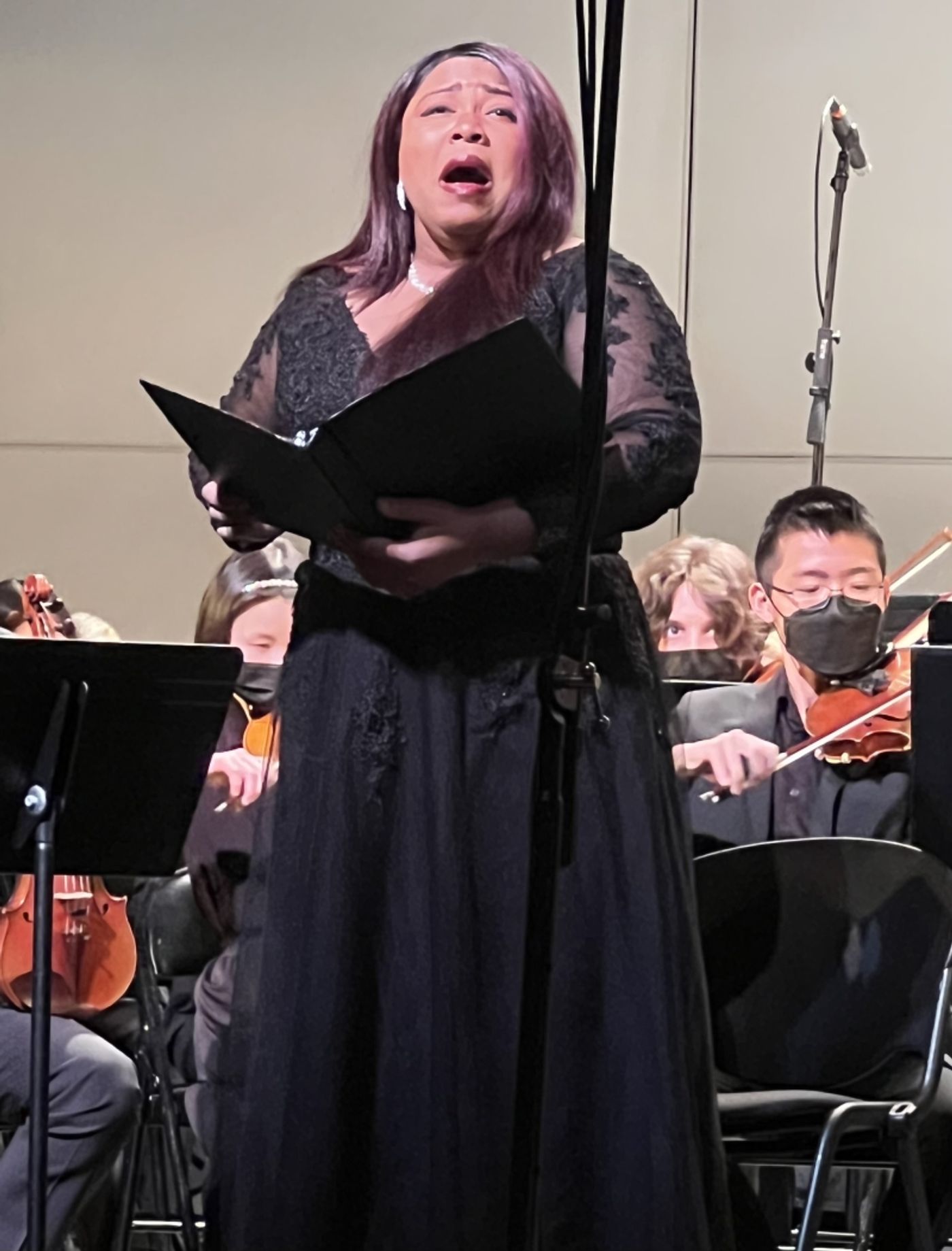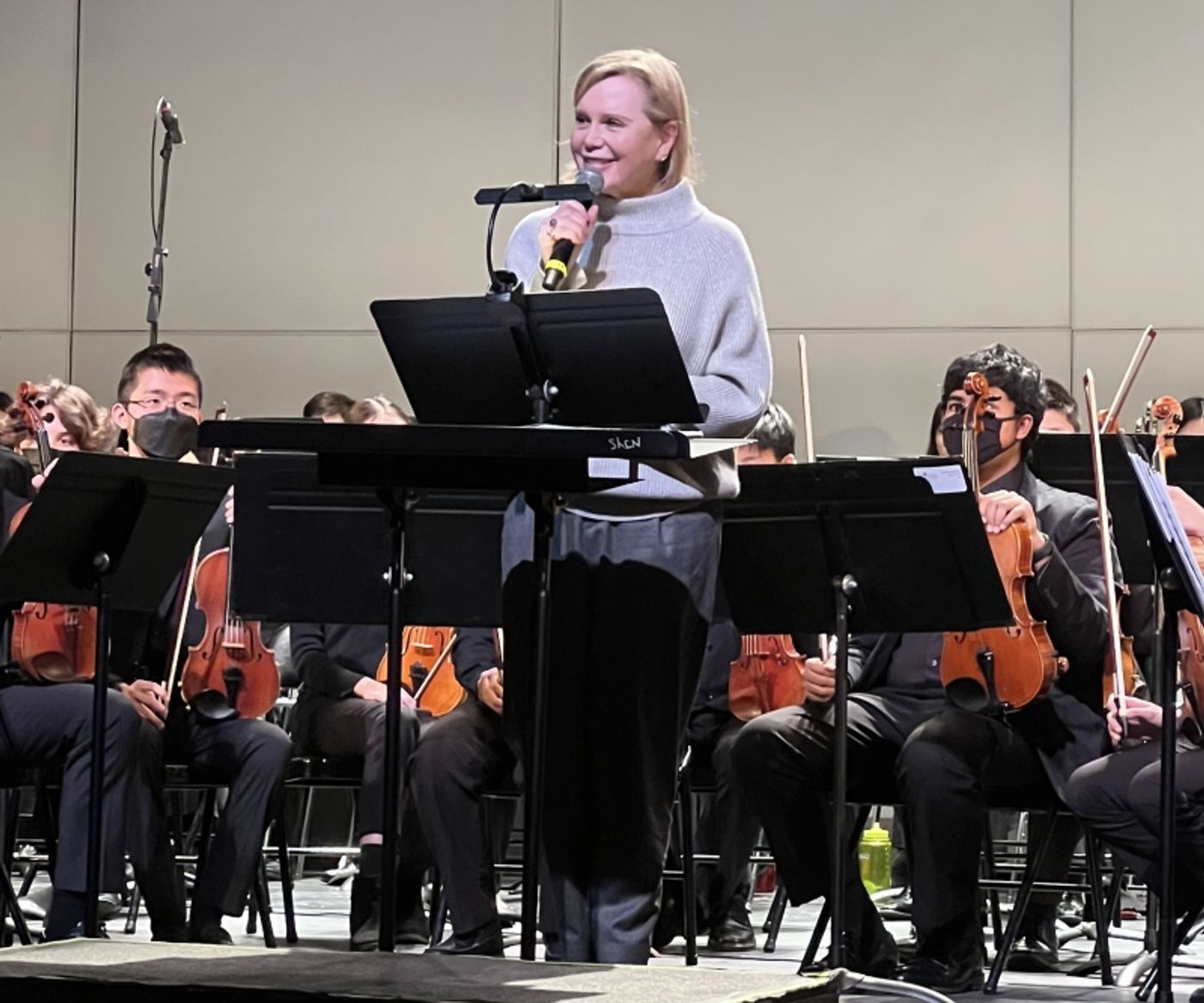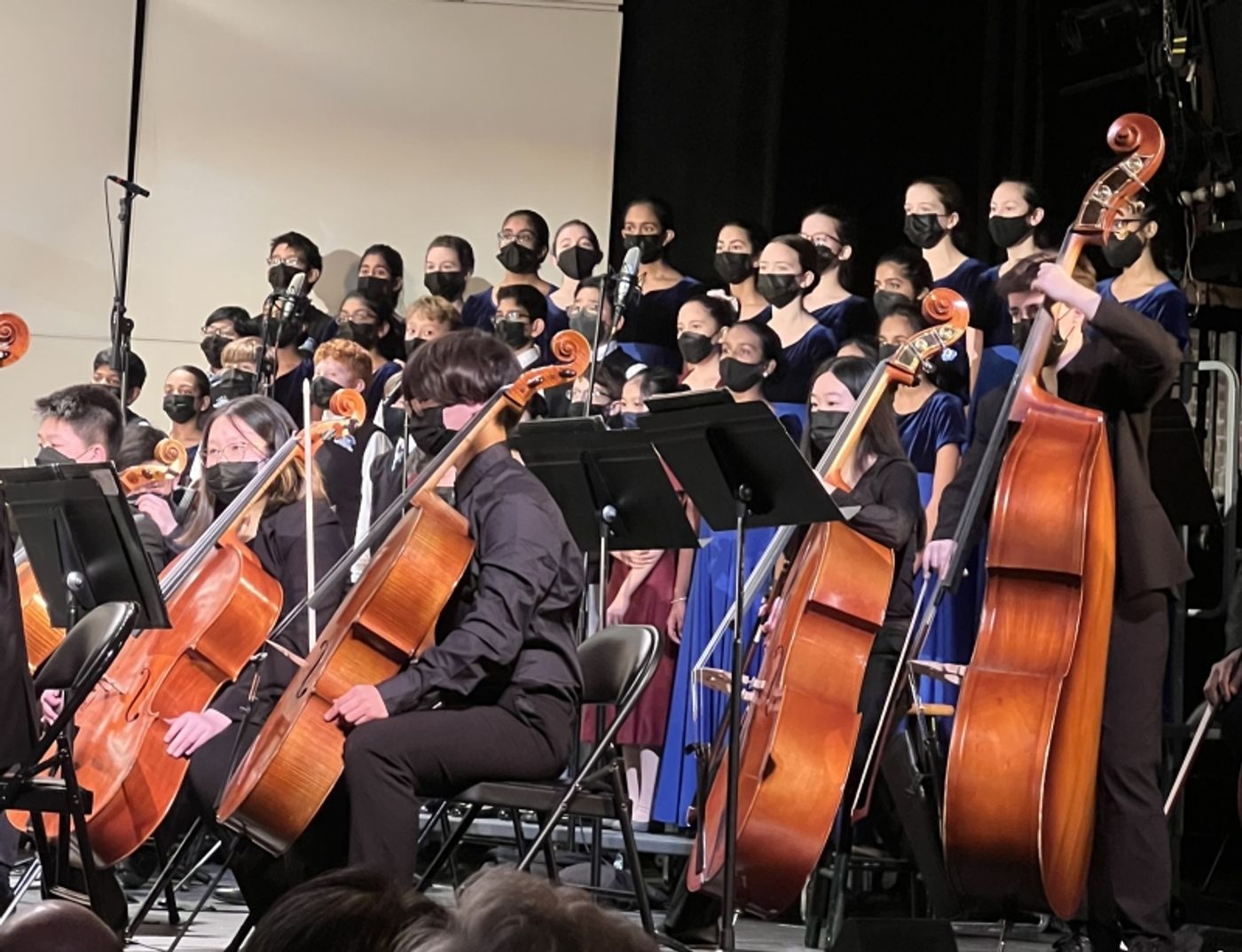Review: A CONCERT FOR PEACE at Union County Performing Arts Center
The New Jersey Youth Symphony performed A Concert for Peace dedicated to Ukraine.

The sounds of darkening clouds eclipsing a silver lining that followed a destructive storm stripped any sighs of relief that the end of strife was indeed the end.
As hundreds of thousands of Ukrainians were displaced from their homes on day three of the fiery, unprovoked war by Russian armed forces, one New Jersey theater was the host site of a two-hour concert for peace dedicated to the embattled European country.

On Saturday, the New Jersey Youth Symphony, a tiered orchestral program of the Wharton Institute for the Performing Arts offering ensemble education for students in grades 3-12 spanning the Garden State, staged a poignant performance of the works of two of the world's most prominent peace advocates: three-time Oscar-winning composer Marvin Hamlisch and winner of the Pulitzer Prize for "A Chorus Line," and 16-time Grammy Award winner Leonard Bernstein.
Under the baton of Helen H. Cha-Pyo, principal conductor of the Wharton Institute for the Performing Arts, the 19-instrument symphony fusing the violin, viola, cello, horn, tuba, trumpet and more performed Bernstein's Symphony No. 1 "Jeremiah" for Orchestra and Mezzo-Soprano and Marvin Hamlisch's "Anatomy of Peace, A Symphonic Suite in One Movement."

"Anatomy of Peace was undoubtedly framed by his parents' harrowing escape from Vienna during World War II," said Hamlisch's widow, Terre-Blair Hamlisch, of her late husband's parents, to a crowd of at least 300 spectators at the Union County Performing Arts Center in Rahway. "His father was a musician and when he prepared for his escape, Marvin's mother was afraid if he was not killed, he would starve. And so, she forced oranges into the bell of his saxophone. The problem was as Marvin's father boarded the train onto the auspices of playing a musical gig in Liechtenstein, the Nazi soldiers boarded the train and one soldier was searching his father's instrument case and he opened the lid and the humiliation of the fruit falling all over the face of this soldier angered the soldier, and the Nazi soldier lunged at Marvin's father. But with the help of kindness, of the strangers on the train, Marvin's father Max jumped from the moving train and the passengers threw him, his musical instrument, and his belongings and he escaped."
She continued, "Needless to say, Marvin Hamlisch never took freedom and peace for granted. With anti-Semitism on the rise, he would believe that everyone deserves to worship in places that are safe and free from gunmen. That schools should be safe and peaceful places to learn. That war and suffering are outdated, and we all have an inherent right to live in peace. That the escalating political rhetoric dividing families and friends is obscuring what we do have in common: our humanity. That something bounds us beyond our ideological identifications, our humanity. No one wants to suffer. And we each deserve to live a life in a peaceful, secure world."

Mrs. Hamlisch then directed her monologue to the performers that evening who hold the power to change the trajectory of the world's future.
"To the musicians on the stage, the New Jersey Youth Symphony and chorus, it is you tonight that will lead the way musically. We will listen to the notes Marvin wrote amid the relevance of the chaotic dissonance in the world today. We will hear your voices and the melody-unifying theme making us remember that music is the language of transcendence, and you will take us beyond ourselves and beyond our differences and remind us of what connects us. But it is your youthful call to the world. It is now your world to create and just maybe being inspired by the symphonic work by Marvin, it will be a world of peace and a world of security that we all deserve."
The compositions were as chaotic as they were cathartic. Typical of peace's nonlinear path, sounds of confusion, pain and distress preceded pleasant wafts of hope and dream-like states of idealism. During Bernstein's "Jeremiah," which is based loosely off the book of Lamentations following the Biblical story of the weeping prophet journeying through loss and the restoration of faith in mankind, mezzo-soprano Cierra Byrd's staged pain was palpable. In between belts of her opera-esque mellifluous singing voice that ranged several octaves, she'd hold her head up pensively to the sky as the flutes and violins wept behind her. Hamlisch's "Anatomy of Peace" was enrapturing, as the wind ensemble astonishingly pierced through the somber, complicated composition with clarity and optimism like the break of dawn in winter. The youth chorus, the voice of the next generation, sang of hope with a resounding message by musical theater lyricist David Zippel demanding one's cynical perception of life be turned on its head:
Some fear the world
They hear the dissonance
And say it always will be
I see the world
As one community
That must be joined by one law
One law for me
One law for all of us
That will unite us someday
And I believe
It's not impossible
If we agree to one law
Nation pride will cease
The world will live in peace
And I believe
It's not impossible
For we are able to change.
Photos by Lianna Albrizio
Reader Reviews
Videos

